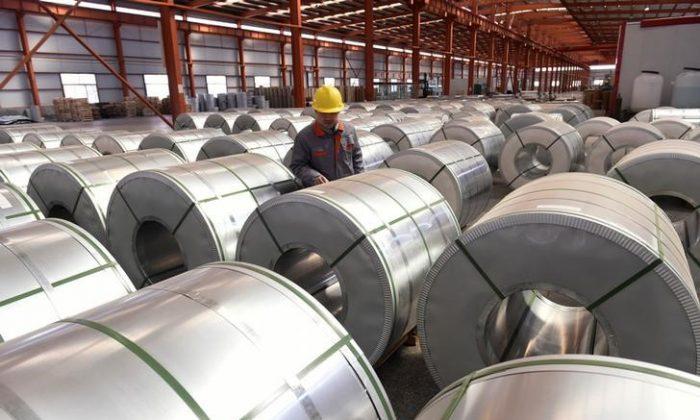WASHINGTON—The U.S. Commerce Department on Nov. 7 said it would impose final anti-dumping and anti-subsidy duties on Chinese common alloy aluminum sheet products of 96.3 percent to 176.2 percent.
The decision marks the first time that final duties were issued in a trade remedy case initiated by the U.S. government since 1985. The Trump administration has promised a more aggressive approach to trade enforcement by having the Commerce Department launch more anti-dumping and anti-subsidy duties on behalf of private industry.
“We will continue to do everything in our power under U.S. law to restrict the flow of dumped or subsidized goods into U.S. markets,” said Commerce Secretary Wilbur Ross in a statement.
The final aluminum sheet duties, however, were reduced from those first imposed in April and July. The initial combined range was 198.4 percent to 280.46 percent.
In 2017, imports of common alloy aluminum sheet from China were valued at an estimated $900 million, the Commerce Department said. The flat-rolled product is used in transportation, building and construction, infrastructure, electrical and marine applications.
The U.S. International Trade Commission (USITC) is scheduled to make its final injury determinations on Dec. 20 after it voted 4-0 in January to authorize the investigation.
U.S. aluminum industry firms including Aleris Corp, Arconic Inc, Constellium NV, Jupiter Aluminum Corp, JW Aluminum Company and Novelis Corp testified in December 2017 about what they termed a surge “in low-priced, unfairly traded imports of common alloy sheet from China.”
The firms said the volume of aluminum sheet product imports had increased by nearly 750 percent over the last decade and by more than 91 percent between 2014 and 2017. This resulted in “significant market share gains by Chinese imports at the direct expense of the U.S. industry.”
Heidi Brock, president and CEO of the Virginia-based Aluminum Association, said in a statement the body and its members were “extremely pleased” with the decision.
China’s aluminum exports fell by 3.6 percent from September to around 531,000 tons in October, the lowest since May, according to customs data released on Thursday.
U.S. President Donald Trump slapped 25 percent tariffs on steel and aluminum in the spring. He said dumping of the metals, from countries such as China, decimated domestic producers and America’s falling capability to produce its own steel created a national security risk, he argued.
The 10 percent tariff on $250 billion of Chinese goods was a retaliation against China’s rampant theft of American trade secrets, forced transfer of know-how, and other trade violations. The tariff is slated to increase to 25 percent on Jan. 1, 2019, unless the two countries can come to an agreement.






Friends Read Free